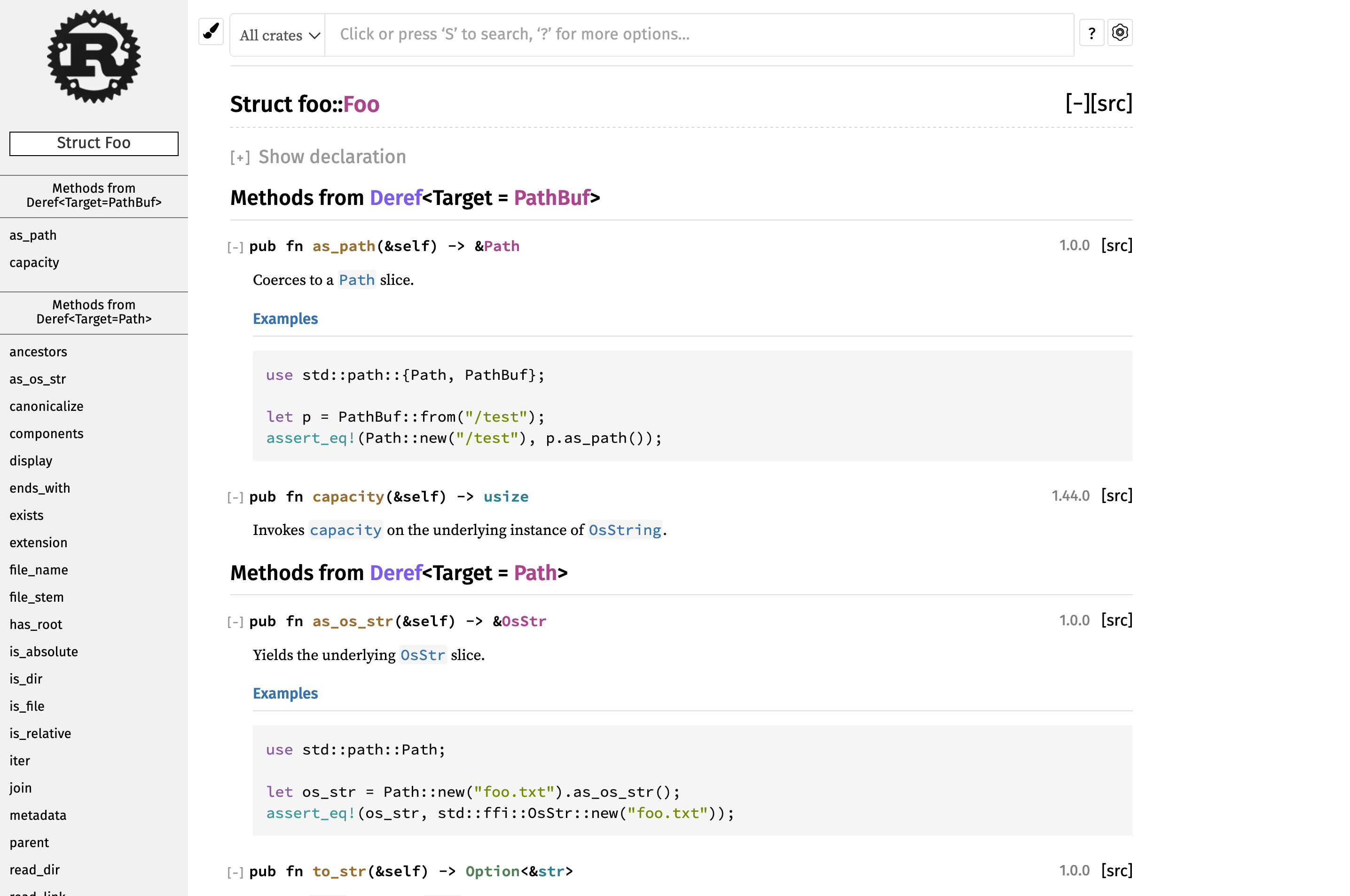rustdoc: make `--passes` and `--no-defaults` have no effect
Fixes#91714
One potential issue is that currently there is no stable way to achieve `--document-hidden-items`. This affects test `issue-15347`.
I also had to modify the tests `issue-42875` and `no-compiler-export`. Regardless of combinations of `--document-hidden-items` and `--document-private-items`, I was unable to get these to pass without the modifications. I left behind a comment noting the change.
Remove `SymbolStr`
This was originally proposed in https://github.com/rust-lang/rust/pull/74554#discussion_r466203544. As well as removing the icky `SymbolStr` type, it allows the removal of a lot of `&` and `*` occurrences.
Best reviewed one commit at a time.
r? `@oli-obk`
- flags no longer function, see #44136
- adjust tests to match new behavior
- removed test issue-42875 (covered regression with --no-defaults)
- moved input-format to removed flags
- move all removed flags to bottom
- note flag removal in command help
- remove DefaultPassOption enum (now redundant with `show_coverage`)
By changing `as_str()` to take `&self` instead of `self`, we can just
return `&str`. We're still lying about lifetimes, but it's a smaller lie
than before, where `SymbolStr` contained a (fake) `&'static str`!
Type inference for inline consts
Fixes#78132Fixes#78174Fixes#81857Fixes#89964
Perform type checking/inference of inline consts in the same context as the outer def, similar to what is currently done to closure.
Doing so would require `closure_base_def_id` of the inline const to return the outer def, and since `closure_base_def_id` can be called on non-local crate (and thus have no HIR available), a new `DefKind` is created for inline consts.
The type of the generated anon const can capture lifetime of outer def, so we couldn't just use the typeck result as the type of the inline const's def. Closure has a similar issue, and it uses extra type params `CK, CS, U` to capture closure kind, input/output signature and upvars. I use a similar approach for inline consts, letting it have an extra type param `R`, and then `typeof(InlineConst<[paremt generics], R>)` would just be `R`. In borrowck region requirements are also propagated to the outer MIR body just like it's currently done for closure.
With this PR, inline consts in expression position are quitely usable now; however the usage in pattern position is still incomplete -- since those does not remain in the MIR borrowck couldn't verify the lifetime there. I have left an ignored test as a FIXME.
Some disucssions can be found on [this Zulip thread](https://rust-lang.zulipchat.com/#narrow/stream/260443-project-const-generics/topic/inline.20consts.20typeck).
cc `````@spastorino````` `````@lcnr`````
r? `````@nikomatsakis`````
`````@rustbot````` label A-inference F-inline_const T-compiler
This change has two advantages:
1. It makes the possible states clearer, and it makes it impossible to
construct invalid states, such as a blanket impl that is also an auto
trait impl.
2. It shrinks the size of `Impl` a bit, since now there is only one
field, rather than two.
Show all Deref implementations recursively
Fixes#87783.
This is a re-implementation of #80653, so taking the original PR comment:
This changes `rustdoc` to recursively follow `Deref` targets so that methods from all levels are added to the rendered output. This implementation displays the methods from all levels in the expanded state with separate sections for each level.

cc `@camelid`
r? `@jyn514`
Before, it was only measuring one callsite of `build_impl`, and it
incremented the call count even if `build_impl` returned early because
the `did` was already inlined.
Now, it measures all calls, minus calls that return early.
It should be preferred over `def_id_no_primitives()`, so it should have
a shorter name. I also put it before `def_id_no_primitives()` so that it
shows up first in the docs.
The old name was confusing because it's easy to assume that using
`def_id()` is fine, but in some situations it's incorrect. In general,
`def_id_full()` should be preferred, so `def_id_full()` should have a
shorter name. That will happen in the next commit.
Now that it's only implemented for `Type`, using inherent methods
instead means that imports are no longer necessary. Also, `GetDefId` is
only meant to be used with `Type`, so it shouldn't be a trait.
It should only ever be a `ResolvedPath`, so this (a) enforces that, and
(b) reduces the size of `Impl`.
I had to update a test because the order of the rendered auto trait impl
bounds changed. I think the order changed because rustdoc sorts auto
trait bounds using their `Debug` output.
Use the correct edition for syntax highlighting doctests
Previously it would unconditionally use edition 2015, which was incorrect.
Helps with https://github.com/rust-lang/rust/issues/89135 in that you can now override the doctest to be 2018 edition instead of being forced to fix the error. This doesn't resolve any of the deeper problems that rustdoc disagrees with most rust users on what a code block is.
cc `@Mark-Simulacrum`
rustdoc: Cleanup `clean` part 2
Split out from #88379. This contains the following commits from that PR:
- Remove `Type::ResolvedPath.is_generic`
- Rename `is_generic()` to `is_assoc_ty()`
r? `@jyn514`
The `Option<Module>` version is supported for the case where we don't know whether the `DefId` refers to a module or not.
Non-local traits and enums are also correctly found now.
Use smaller spans for some structured suggestions
Use more accurate suggestion spans for
* argument parse error
* fully qualified path
* missing code block type
* numeric casts
Allow missing code examples in trait impls.
Excludes Trait implementations from the items that need to have doc code examples when using the `rustdoc::missing_doc_code_examples` lint.
For details see #88741fixes#88741
r? `@jyn514`